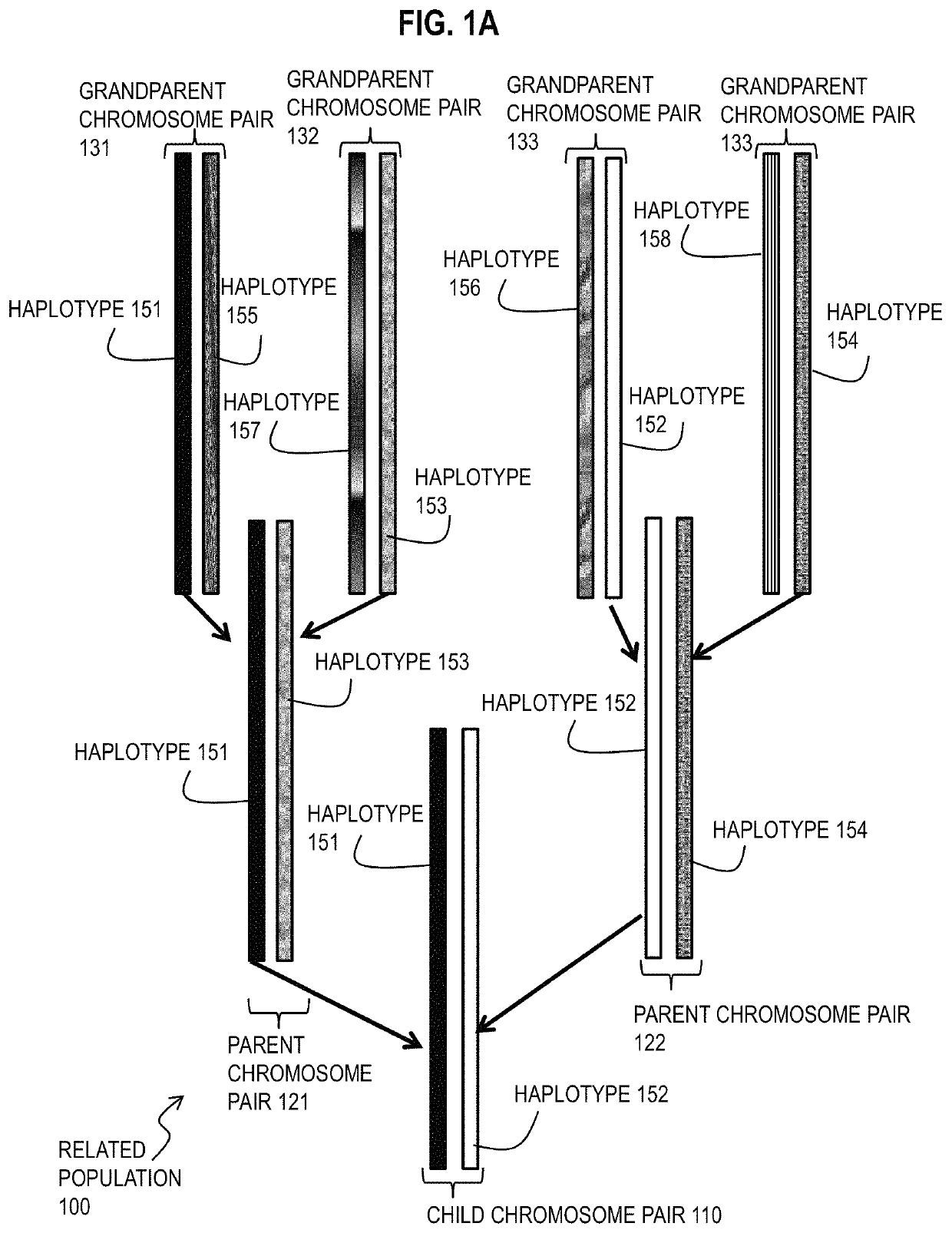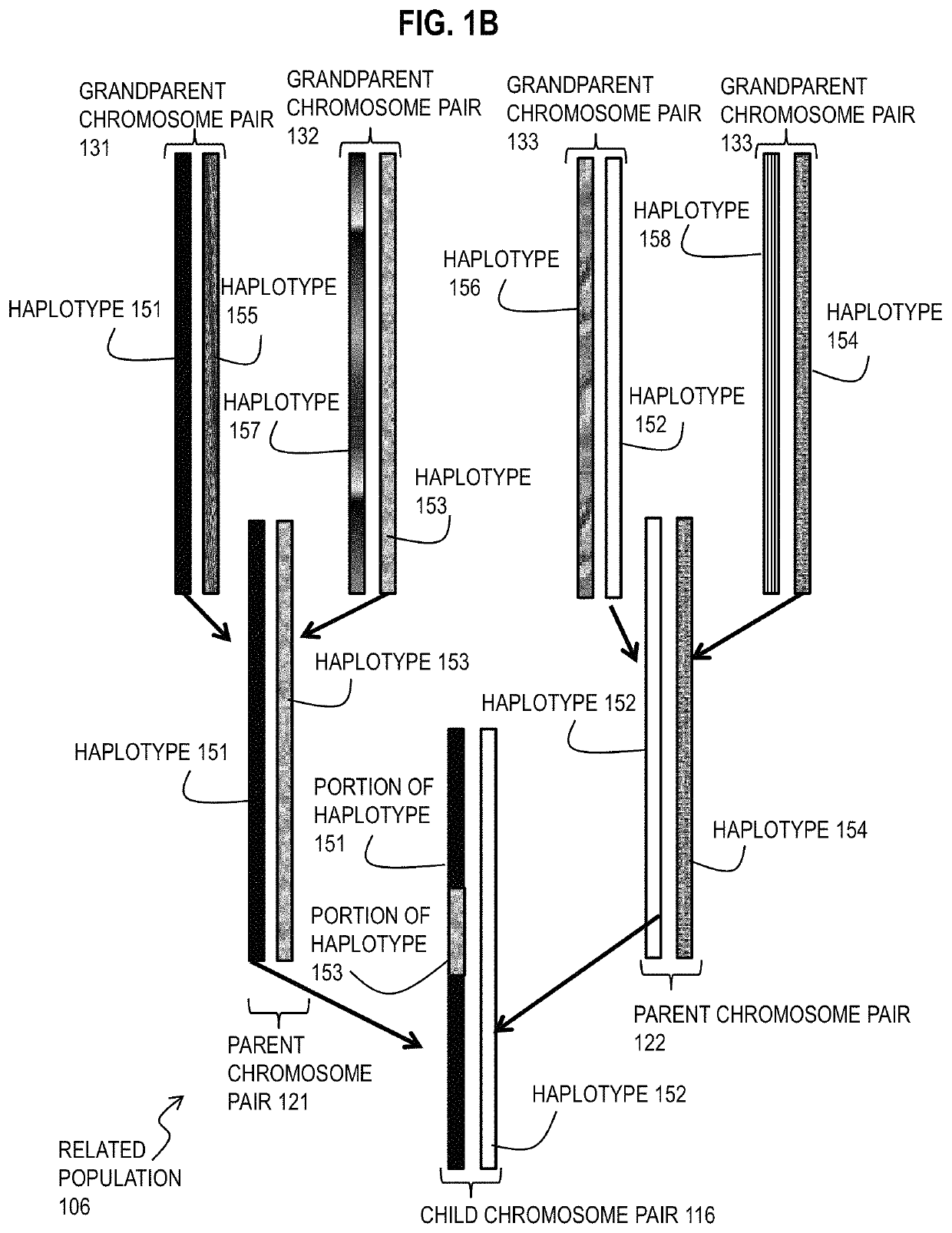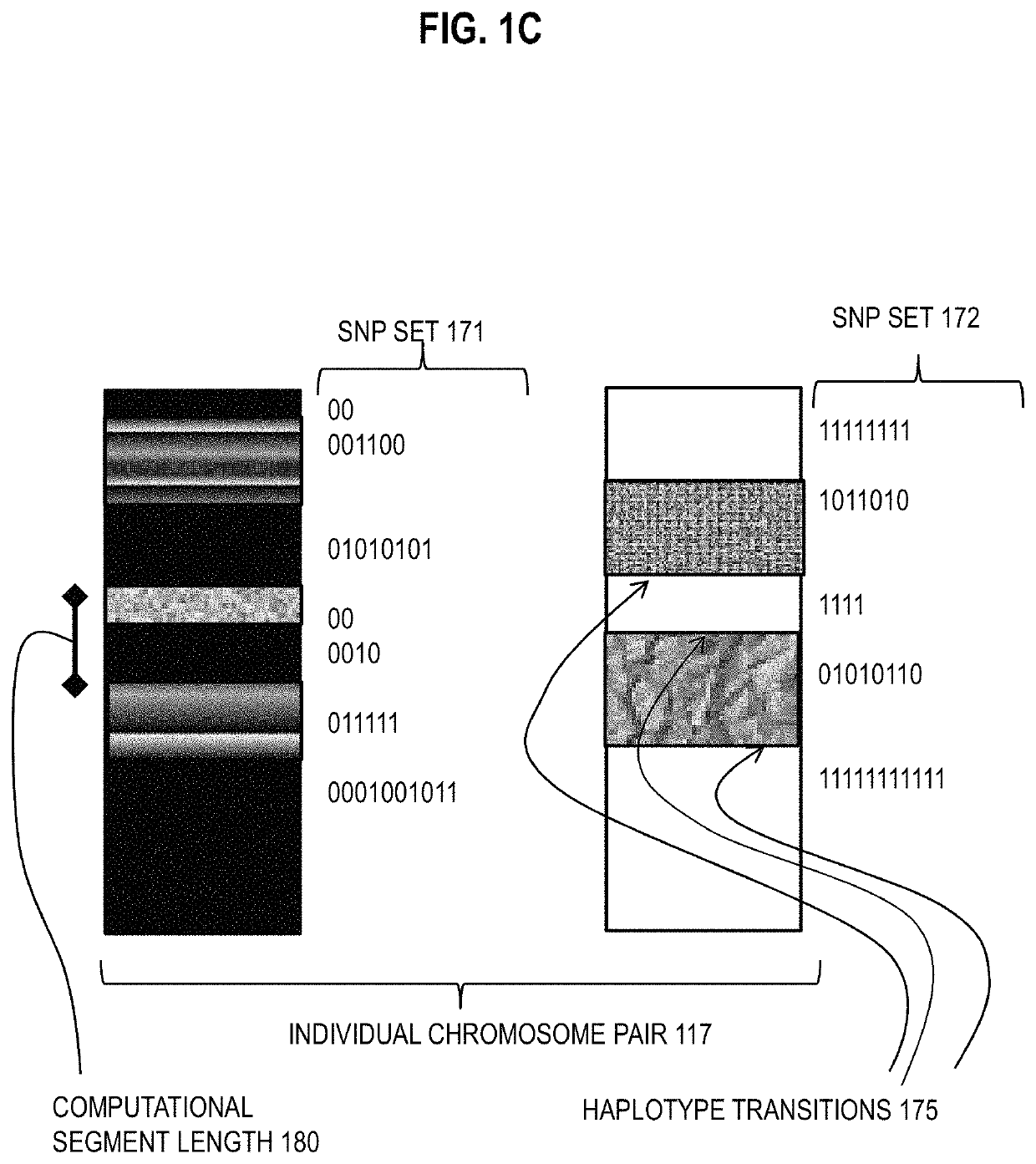Techniques for determining haplotype by population genotype and sequence data
a technology applied in the field of population genotype and sequence data, can solve the problems of easy phased phase, particularly difficult phase of rare variant sites in the genome, etc., and achieve the effect of superior accuracy and better phasing
- Summary
- Abstract
- Description
- Claims
- Application Information
AI Technical Summary
Benefits of technology
Problems solved by technology
Method used
Image
Examples
Embodiment Construction
[0031]A method and apparatus are described for determining haplotype by population genotype and sequence data. In the following description, for the purposes of explanation, numerous specific details are set forth in order to provide a thorough understanding of the present invention. It will be apparent, however, to one skilled in the art that the present invention may be practiced without these specific details. In other instances, well-known structures and devices are shown in block diagram form in order to avoid unnecessarily obscuring the present invention. In the following description many references are cited. The entire contents of each reference cited below is hereby incorporated by reference as if fully recited herein, except for terminology that is inconsistent with the terminology used herein.
[0032]To date, several phasing algorithms have been developed to perform phasing on large-scale datasets, and these generally appear to yield similar results on commercial genotype a...
PUM
 Login to View More
Login to View More Abstract
Description
Claims
Application Information
 Login to View More
Login to View More - R&D
- Intellectual Property
- Life Sciences
- Materials
- Tech Scout
- Unparalleled Data Quality
- Higher Quality Content
- 60% Fewer Hallucinations
Browse by: Latest US Patents, China's latest patents, Technical Efficacy Thesaurus, Application Domain, Technology Topic, Popular Technical Reports.
© 2025 PatSnap. All rights reserved.Legal|Privacy policy|Modern Slavery Act Transparency Statement|Sitemap|About US| Contact US: help@patsnap.com



